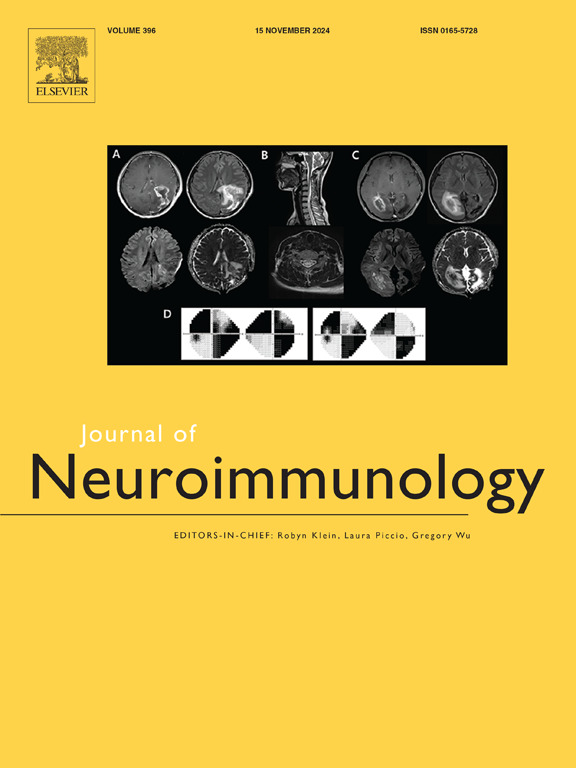Rapid one-step protocol for exploring immune cells in cerebrospinal fluid
IF 2.5
4区 医学
Q3 IMMUNOLOGY
引用次数: 0
Abstract
Flow cytometry analysis of the cerebrospinal fluid's immune cell subset profiles can be used to help in the diagnosis and prognosis of nervous system pathologies. However, the cells need to be analyzed rapidly after collection. Furthermore, immune cells are quite rare in CSF, samples are limited in volume and immune staining protocols, sometime including washing steps, are not fully standardized among laboratories. It is therefore useful and necessary to improve the pre-analytical and analytical processes.
We have thus developed the one-step protocol for the analysis of CSF cells, without washing step, using a panel of labeled antibodies for both enumeration of red and white blood cells and the analysis of main immune cell subsets. We first investigated repeatability of this protocol for the main immune cell subsets count and staining and its stability over a 3-day period using a mild fixation protocol. Then, using this protocol, we evaluated the impact of delays in treatment after lumbar puncture.
We demonstrate that cell count and staining are stable over 3 days in both CSF and whole blood samples. Direct labeling with no washing step combined with the cytometer's analytical performance enable precise and reproducible cell counting. Using this simple and robust protocol, we showed that monocytes are lost if the biological samples are not processed rapidly following the lumbar puncture.
This one-step method allows for rapid, standardized, and reproducible multiparametric CSF immune cell analysis.

探索脑脊液中免疫细胞的快速一步方案
流式细胞术分析脑脊液免疫细胞亚群可用于神经系统病变的诊断和预后。然而,细胞收集后需要快速分析。此外,脑脊液中的免疫细胞非常罕见,样本数量有限,免疫染色方案,有时包括洗涤步骤,在实验室中没有完全标准化。因此,改进分析前和分析过程是有益和必要的。因此,我们开发了一种无需洗涤步骤的一步式脑脊液细胞分析方案,使用一组标记抗体来枚举红细胞和白细胞并分析主要免疫细胞亚群。我们首先研究了该方案对主要免疫细胞亚群计数和染色的重复性及其在3天内使用温和固定方案的稳定性。然后,使用该方案,我们评估腰椎穿刺后延迟治疗的影响。我们证明在脑脊液和全血样本中,细胞计数和染色在3天内是稳定的。直接标记,没有洗涤步骤,结合细胞仪的分析性能,使精确和可重复的细胞计数。使用这个简单而可靠的方案,我们发现如果生物样本在腰椎穿刺后没有迅速处理,单核细胞就会丢失。这种一步法允许快速,标准化和可重复的多参数CSF免疫细胞分析。
本文章由计算机程序翻译,如有差异,请以英文原文为准。
求助全文
约1分钟内获得全文
求助全文
来源期刊

Journal of neuroimmunology
医学-免疫学
CiteScore
6.10
自引率
3.00%
发文量
154
审稿时长
37 days
期刊介绍:
The Journal of Neuroimmunology affords a forum for the publication of works applying immunologic methodology to the furtherance of the neurological sciences. Studies on all branches of the neurosciences, particularly fundamental and applied neurobiology, neurology, neuropathology, neurochemistry, neurovirology, neuroendocrinology, neuromuscular research, neuropharmacology and psychology, which involve either immunologic methodology (e.g. immunocytochemistry) or fundamental immunology (e.g. antibody and lymphocyte assays), are considered for publication.
 求助内容:
求助内容: 应助结果提醒方式:
应助结果提醒方式:


